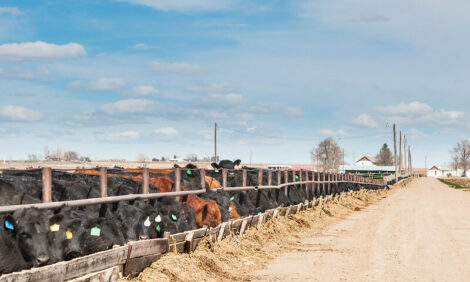



Livestock Markets Remain Important In Industry
UK - A new independent report showing Britain's livestock auction markets are a key hub in the local agricultural network, offering a fair and open market system that has stood the test of time, has been welcomed by the British Livestock Auctioneers Association (LAA).Commissioned by EBLEX and published in January, the report highlights the resurgence of sales of sheep through live markets, as well as a significant increase in the sale of older cull cows for human consumption.
It points out that while markets have coped successfully over the years with countless challenges posed by restrictions after outbreaks of disease, EU regulations, economic downturns and a decline in livestock numbers, they have seen growth in specialist beef and store cattle sales.
"Livestock markets remain an important part of the structure of farming throughout England and, indeed, Great Britain. They provide a tried and tested way of assembling livestock for sale and arriving at a price in an open and transparent way on which the trade can be made," states the report.
"For many, young and old, the social dimension of attending a livestock auction market is also seen (by farmers) as a good way of networking and updating knowledge about the industry. Marts are also recognised as very important for the farmer-to-farmer trade of store and breeding animals."
The comprehensive report, warns however, that "some supermarkets and their main abattoir suppliers may continue to try and phase livestock markets out of the primary procurement chain," and it urges markets to respond to these threats by further improving their efficiency and proactively demonstrating why they are needed.
LAA chairman Gwyn Williams commented: "We are heartened by this positive report, which we believe puts livestock auction marts in their right place near the top of the farm animal supply chain."
Mr Williams pointed out that several livestock auction markets had already invested thousands of pounds in the latest technology to speed up the handling and processing of animals coming into markets, as well as improving their environmental standards and visitor facilities.
They are also playing a major role in providing vital movement records for abattoirs, the government and farmers, while acting as important rural agri- business centres for related industries, including land agents and veterinary surgeons.
TheCattleSite News Desk


